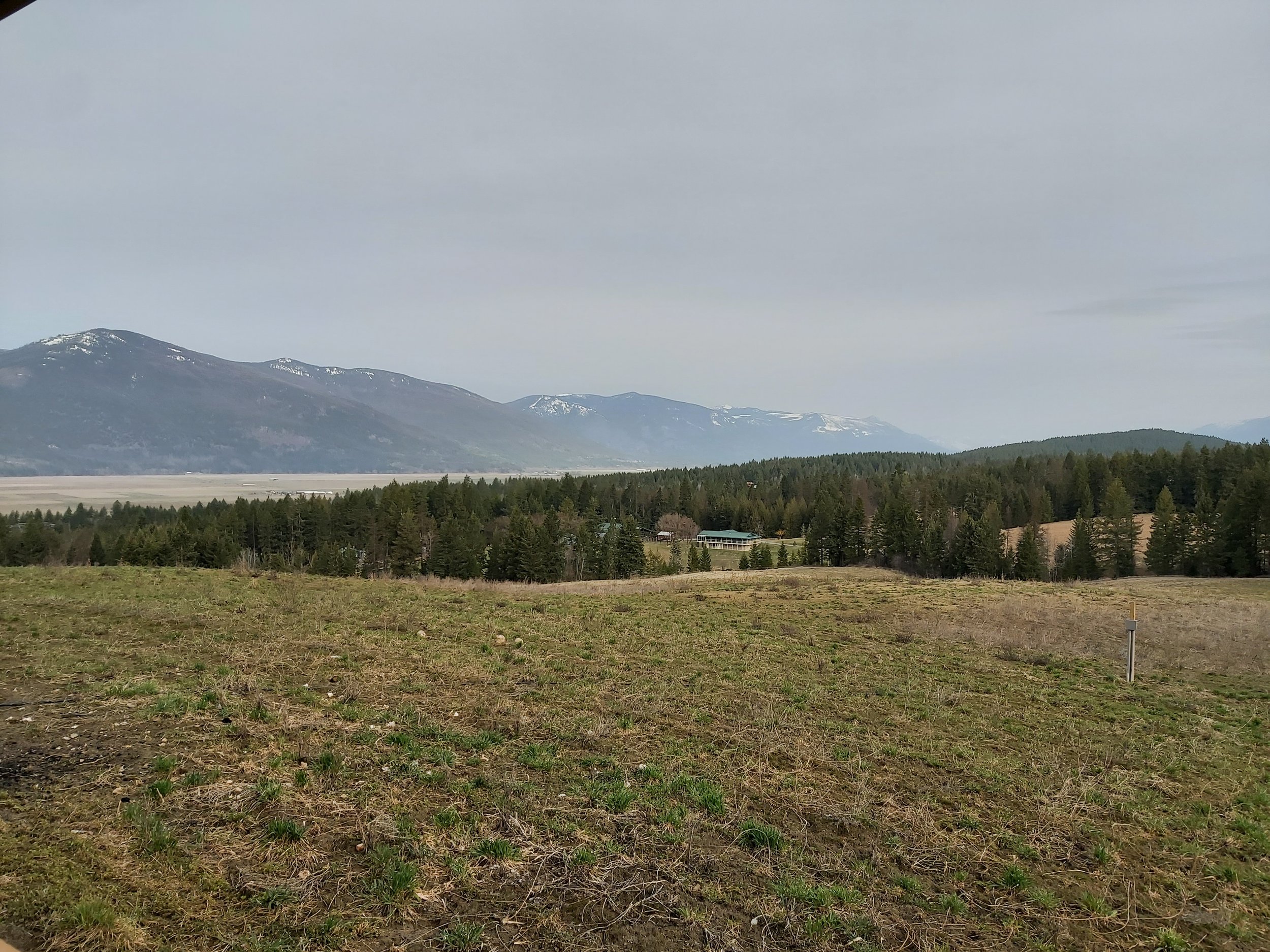“There is no passion to be found playing small—in settling for life that is less than the one you are capable of living.”
Little Dog Farm | Creston, British Columbia
Improve the quality of highly compacted soil from decades of intensive pasture management.
This case study focuses on Cathy and Ian Finley of Little Dog Farm, who are dedicated to enhancing the soil's quality in their future orchard to optimize fruit production, some of which will be used for cider production. Their plan involves cultivating 50 diverse fruit trees—apples, plums, peaches, nectarines, crabapples—alongside nitrogen-fixing trees, totalling nearly 600 trees in their 50-acre plot.
Three years ago, when they first set foot on their new land, arid and barren from years of intensive hay production, the prospect of transforming it into a thriving orchard appeared to be an impossible challenge. Fast forward to today, following two years of implementing living soil practices, their once-lifeless fields are now vibrant with diverse cover plants and flourishing mushrooms. The soil has transformed remarkably, pulsating with vitality—a promising sign of the orchard's future.
-
July 2020 - Ongoing
-
orchard (organic apples, plums, pears, peaches, nectarines, crabapple).
-
~50 ac.
-
• Very poor soil structure - hard to break large, compact clods and have the tendency to crust.
• Poor cover seed germination and water-holding capacity due to extreme compaction.
-
Since early 2021, Little Dog Farm's efforts to improve soil quality have led to:
• The reawakening of planted cover seeds from the year prior.
• Increased vegetation cover, contributing to soil moisture retention and improved aboveground biodiversity.
• Significant increase in the fungal biomass, especially in the S. Orchard, which will help facilitate the decomposition and nutrient cycling processes.
-
• There are still many unknowns since planting new young trees in the spring of 2023. We hope the young orchard can withstand potential pest, disease and water-deficit pressures during their first few years of growth.
• Compaction is still a big issue.
-
• Field observations
• Nematode Functional Group Assay by RootShoot Soils
• Baseline soil quality testing from Société Générale de Surveillance (SGS)
Initial site visit - clods were very difficult to break.
2023 Oct - S. Orchard blooming with puffballs. Photo courtesy of Little Dog Farm
More mushrooms. Photo courtesy of Little Dog Farm.
2021 April - Initial site visit. The view of the N. Orchard.
2022 May - lush view of the N. Orchard. Photo courtesy of Ian Finley.
Photo courtesy of Ian Finley
Massive puffball mushroom in the S. Orchard. Photo courtesy of Ian Finley







